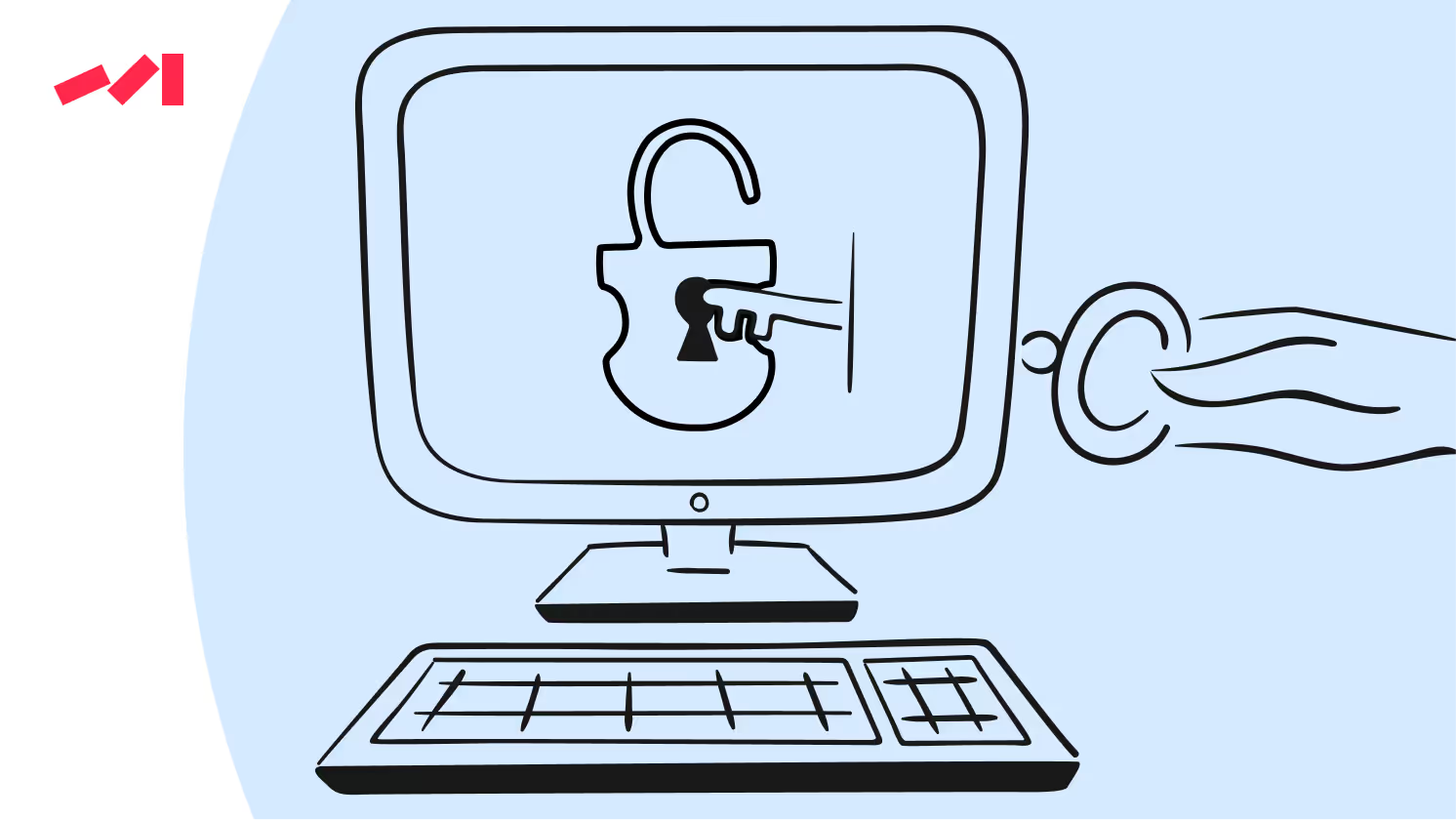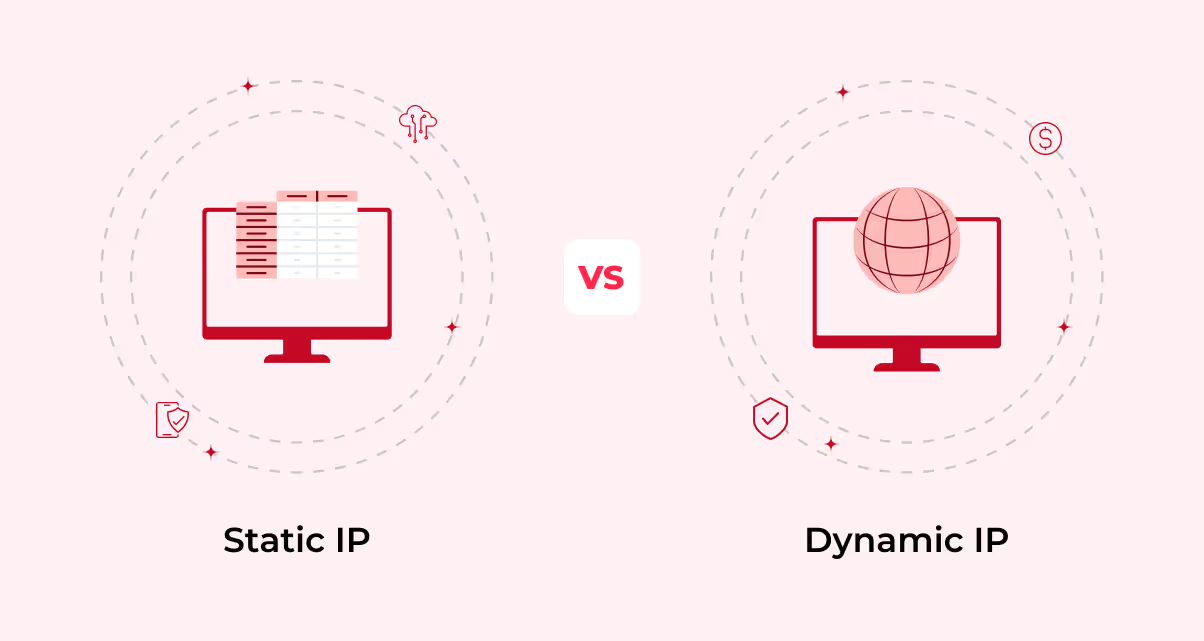
Understand the difference between dedicated and shared IPs. Learn their benefits, disadvantages, and how to choose the right one for your business
When launching a website, running email campaigns, or managing an online business, decisions about your infrastructure can have long-term implications. One of these critical decisions involves choosing between a dedicated IP address and a shared IP address. Which one is right for your needs?
This post will demystify IP addresses and provide a clear breakdown of dedicated vs. shared IPs, their differences, and their respective advantages. By the end of this article, you’ll understand what each option offers—and be better equipped to make an informed choice.
An IP address (Internet Protocol address) is a unique identifier assigned to a device or server, enabling communication over the internet and ensuring data reaches the correct destination. It acts as the digital location of a device, much like an address in the physical world.
Without IP addresses, websites, email servers, and online services could not function or communicate effectively.
Shared IPs are common in shared hosting environments, providing an affordable solution for personal blogs and small business websites.A shared IP address is an IP used by several users or websites at the same time. This is common in shared hosting environments where a single server hosts several websites using the same IP address. However, a shared IP address does not necessarily mean hosting on a shared server—multiple sites can share an IP even if they are on different servers.
For example, if your website is on a hosting plan with other small websites, it’s likely you’re all sharing the same IP. It’s a cost-effective solution because the expenses of maintaining that IP are distributed across multiple users. Sharing IP addresses also helps reduce maintenance costs for hosting providers and ISPs. However, sharing an IP address means your email reputation can be affected by other senders using the same IP. Additionally, sharing an IP address with other sites can impact your website's reputation and deliverability. If other websites sharing your IP engage in malicious activity, it can lead to blacklisting or blocking by search engines.
According to Perimeter81, shared IPs are common in shared hosting environments, providing an affordable solution for personal blogs and small business websites. (Perimeter81, 2024)
A shared IP functions through server-side configurations that direct incoming traffic to the correct domain. When someone enters your website’s URL, the server identifies your site based on the request and serves the appropriate content—even though multiple websites share the same IP. This means that multiple domains can be hosted on a single IP address, and with Server Name Indication (SNI), modern hosting solutions can use multiple SSL certificates on a single IP address.
Example: If your cloud hosting uses a shared IP (e.g., 203.0.113.10), visitors to both www.fictionalwebsiteA.com and www.fictionalwebsiteB.com could be accessing the same server resources, differentiated only by the domain name routing. Some hosting environments may also utilize multiple IP addresses to support different services or sites on the same server.
"Since dedicated IP addresses are exclusive, you have more control over improving and maintaining your IP’s reputation. For example, with shared IPs, your IP’s reputation is easily affected by other users sending spam emails."
—Shubhneet Goel, Co-founder and CTO of InboxAlly Blog
A dedicated IP address is a unique identifier assigned exclusively to a single entity, such as a user, device, or website. This relationship ensures that the IP address is not shared with others, granting full control and access to the assigned entity. The dedicated IP connects directly to one domain, allowing uninterrupted access to a website even if domain servers go down. Businesses often establish a relationship with dedicated IP addresses to maintain control over their server environment, enhance security protocols, and support high-volume email campaigns. In this setup, the dedicated IP ensures that sender reputation, security, and deliverability are tied solely to the entity it serves.
In late 2023, Cloudflare reported that around 36% of all HTTP traffic was over IPv6. When excluding bot traffic, this figure increased to just over 46%, while excluding human traffic reduced it to approximately 24%. (Cloudflare, 2023)
When you purchase a hosting plan or server with a dedicated IP (e.g., 198.51.100.42), all the traffic going to that IP is directed solely to your domain or application. When you obtain a new dedicated IP, there may be a period of DNS propagation and reputation building. Switching to a new dedicated IP address can impact email deliverability and requires careful management. This allows for more streamlined functionality and control.
Example: If you own an email-marketing platform with an associated dedicated IP address, you can ensure your email delivery reputation is unaffected by the actions of others. Managing your IP's reputation is crucial for maintaining high email deliverability. A dedicated IP allows you to build your own email reputation, independent of others. Your sending reputation is determined by your own email sending practices when using a dedicated IP, which is essential for effective email sending and avoiding spam filters.
When it comes to email deliverability and online trust, the type of IP address you use—dedicated or shared—can have a major impact on your domain reputation. With a dedicated IP address, you have complete control over your IP’s reputation and sender reputation. This means that only your sending behavior affects how internet service providers (ISPs) and mailbox providers view your emails, making it easier to build and maintain a positive reputation over time.
In contrast, shared IP addresses are used by multiple users or businesses at the same time. This means your reputation is directly tied to the actions of other users sharing the same IP address. If someone else on the same IP engages in spammy or questionable practices, it can lead to reputation issues for everyone—potentially resulting in IP blacklisting and poor email deliverability, even if your own sending practices are above board.
ISPs and mailbox providers evaluate both IP reputation and domain reputation to determine whether to trust emails sent from a particular address. A strong sender reputation is especially important for high volume senders, such as those running large email marketing campaigns or sending transactional emails. For these users, a dedicated IP address is often the best choice, as it helps avoid the negative consequences of sharing an IP with others and provides direct influence over your own reputation management.
Yes, you can change your dedicated IP address. It involves contacting your hosting provider or ISP to assign you a new dedicated IP or new dedicated IP address. Obtaining a new dedicated IP address may require DNS propagation and updating your server or application configurations. This may be useful if:
It's important to understand the difference between a static IP address, which remains the same and provides consistent network identification, and a dynamic IP address, which is periodically reassigned by your ISP. Static IP addresses are preferred for hosting servers and ensuring consistent access, while dynamic IP addresses can offer cost savings and increased security.
Switching is straightforward, especially if you work with a managed hosting provider offering dedicated proxy servers and robust configurations.

When you’re just starting out and don’t expect heavy traffic.
Sharing resources can significantly reduce costs.
Protect sensitive customer data and ensure good performance.
Maintain a strong sender reputation for outgoing emails. As your user base grows, a dedicated IP helps maintain deliverability and reputation.
Require custom SSL certificates or enhanced authentication methods.
Quickly access your network via IP without relying on DNS—ideal for remote teams.
A dedicated IP is also an important part of a comprehensive email strategy for businesses focused on email marketing.
If your operations rely heavily on secure transmission, fast traffic routing, or email campaigns, a dedicated IP is highly recommended. Conversely, smaller projects without intense resource demands may benefit from a shared IP.
Not directly. However, dedicated IP hosting often correlates with better server configurations and less congestion, which may enhance overall performance.
It depends. Sharing an IP is generally safe with reputable hosting providers. However, sharing an IP with malicious or spammy users can lead to reputational and deliverability issues. This is why many businesses opt for dedicated IPs.
You can get a dedicated IP by:
At Darwin, we offer comprehensive dedicated proxy solutions tailored for businesses wanting control, performance, and security. Whether you’re hosting critical servers or managing high-volume emails, we simplify the process of getting a dedicated IP proxy.
Our team of experts is ready to assist you with security configurations, development needs, and everything in between. Contact us today to learn how Darwin can elevate your projects.
Whether you choose a shared IP for cost-efficiency or a dedicated IP for better performance and security, your decision should align with your business goals. This blog post serves as a helpful resource for understanding the differences between dedicated and shared IP addresses, providing clear explanations to guide your choice. When deciding, businesses should also consider different services and hosting options, such as multiple IP addresses or load balancers, to optimize site security, performance, and architecture. Choosing the right IP type can significantly impact your website’s speed, security, and accessibility—not to mention your brand’s online reputation.
Want to explore your options? With our expert solutions, you can integrate a seamless, customizable setup that perfectly suits your needs.